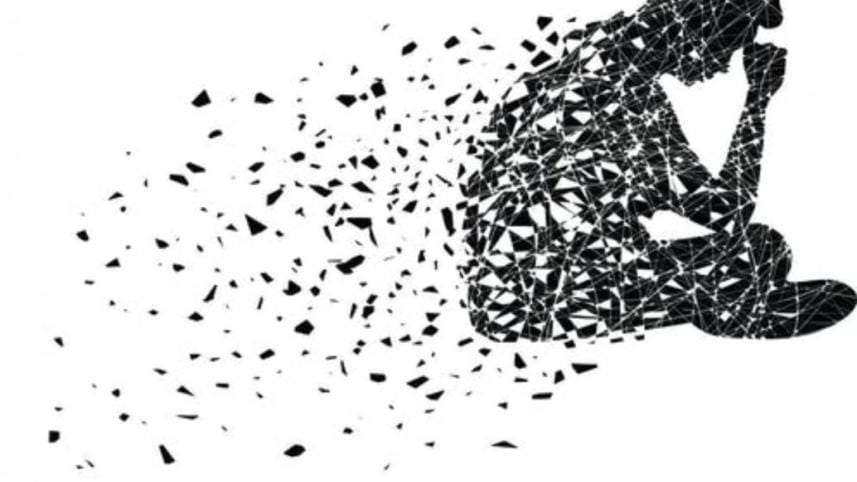Teachers are responsible for students' mental health, too

The start of the new year was marked by a tragedy that sent shockwaves throughout academic communities: the untimely death of Mehdi Hasan, a student of urban and regional planning at Rajshahi University of Engineering and Technology (RUET). Found in his dorm room on January 10, Mehdi's death by suicide painfully underscores the crisis of academic depression and the systemic failures that allow such despair to fester. His death, far from being an isolated incident, follows a disturbing pattern. In July 2023, Tanveer Fuad Rumi and Samiur Rahman, students of the same institution, also died by suicide. These cases are part of a broader epidemic of student suicides in Bangladesh—513 in 2023 and 532 in 2022, according to Aachol Foundation—each a harrowing story of unfulfilled dreams, silenced voices, and grieving families.
While the causes of student suicides are complex and multifaceted, ranging from societal pressures to financial struggles, the role of academia—specifically educators—requires urgent attention. University years, intended to foster growth and discovery, often become a source of despair for students. Allegations of unprofessional conduct by faculty members, including deliberate failing of students, highlight a darker side. Students have alleged that the combined impact of teachers' behaviour and the environment at RUET, creating a toxic atmosphere, is responsible for the recurring suicides. Mehdi's tragic case points towards irresponsible teaching practices: bias, grudge-driven grading, and hostile communication.
In response to growing dissatisfaction regarding the suicide cases, RUET students have put forward a set of demands aimed at improving transparency, fairness, and mental health awareness within the institution. Key points include the implementation of a coding system for exam evaluation to ensure impartiality, prompt publication of results with opportunities for students to review answer scripts, and stricter accountability for faculty members accused of misconduct. They have also demanded for regular mental health awareness sessions for both students and teachers to reduce stress and promote understanding. Importantly, they emphasise the need for enhanced campus security and fairness in attendance policies, ensuring that institutional structures support, rather than hinder, students' well-being. These demands reflect students' deep discomfort with the university system, particularly the grading system and the conduct of teachers, highlighting their frustration with perceived biases, lack of transparency, and insufficient support for mental health and overall well-being.
A recurring issue in universities seems to be the recruitment process of educators, which often prioritises academic qualifications over the ability to mentor and support students. Many institutions hire teachers based solely on their degrees or research credentials, without assessing their capacity for teaching or their emotional intelligence. Effective teaching requires more than mastery of a subject; it demands an understanding of students' psychological and emotional challenges. Teachers who fail to connect with their students or are unaware of the impact of their actions can foster feelings of alienation and frustration.
In particular, how educators respond to struggling students is crucial. Teachers should provide constructive support, identify when students are falling behind, and engage proactively. Universities must adopt policies that focus on mentorship and individualised support, offering resources like personalised feedback or flexible exam retakes.
Adequate training is a critical missing link in the current system. Universities in Bangladesh rarely provide structured programmes to equip educators with the tools necessary to handle diverse challenges. Training in mental health awareness, active listening, and conflict resolution should be mandatory as well as ensuring that teachers can recognise signs of distress and respond constructively. Additionally, educators should adapt their teaching methods to suit the university setting, where students need a balance of guidance, autonomy, and respect.
Another issue is the lack of accountability for educators' behaviour. Instances of bias, grudge-driven actions and unprofessional conduct often go unaddressed due to the hierarchical nature of academic institutions. Universities must establish mechanisms for students to report grievances without fear of retaliation. Independent committees should investigate complaints and ensure fair outcomes. Regular performance evaluations, incorporating student feedback, can help identify and address problematic behaviours, if any, among faculty members.
To address these systemic issues, institutional reforms are essential. Universities should revamp recruitment processes to evaluate candidates' teaching aptitude, interpersonal skills, and understanding of student needs. Orientation programmes for new faculty members should emphasise empathy, fairness, and the psychological impact of their actions. Periodic workshops on mental health awareness and effective communication should be mandatory for all educators.
Universities also must invest in resources such as trained mental health counsellors and peer support networks. Very few universities provide dedicated counselling services, and many students do not even know how to access them. Institutions must prioritise breaking the stigma surrounding mental health by encouraging open and judgement-free discussions. Replacing hyper-competitive academic cultures with one that values collaboration, personal growth, and learning over grades and rankings is critical. These changes can transform universities into spaces where students feel safe, supported, and equipped to thrive.
Ruhina Tabasshum Prome is research associate at Bangladesh Institute of Governance and Management (BIGM).
Views expressed in this article are the author's own.
Follow The Daily Star Opinion on Facebook for the latest opinions, commentaries and analyses by experts and professionals. To contribute your article or letter to The Daily Star Opinion, see our guidelines for submission.



 For all latest news, follow The Daily Star's Google News channel.
For all latest news, follow The Daily Star's Google News channel. 
Comments